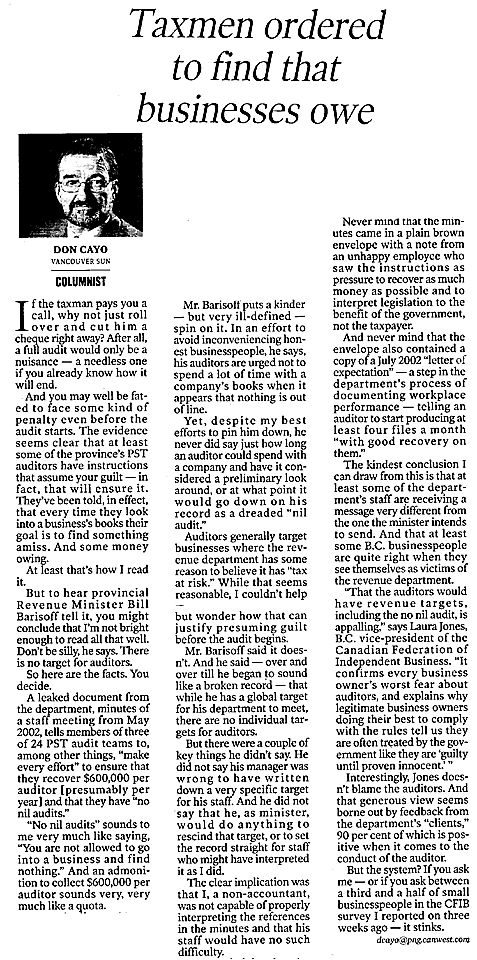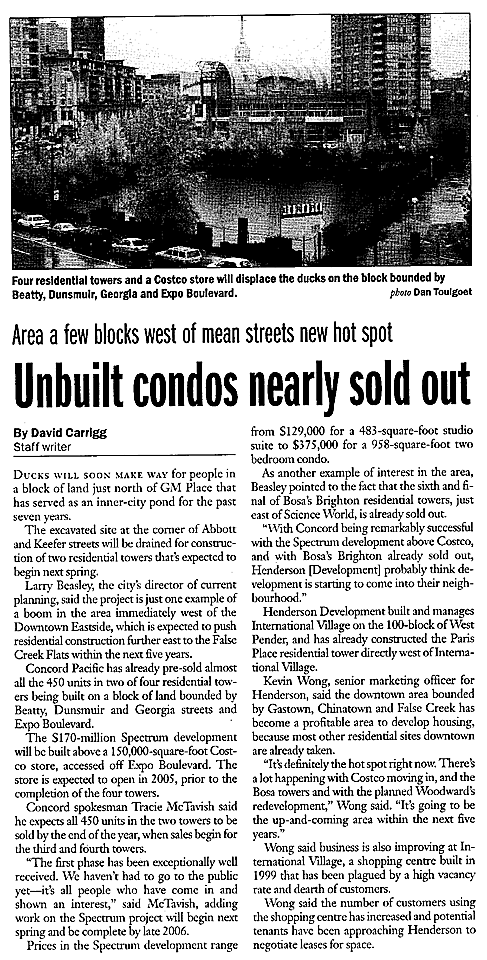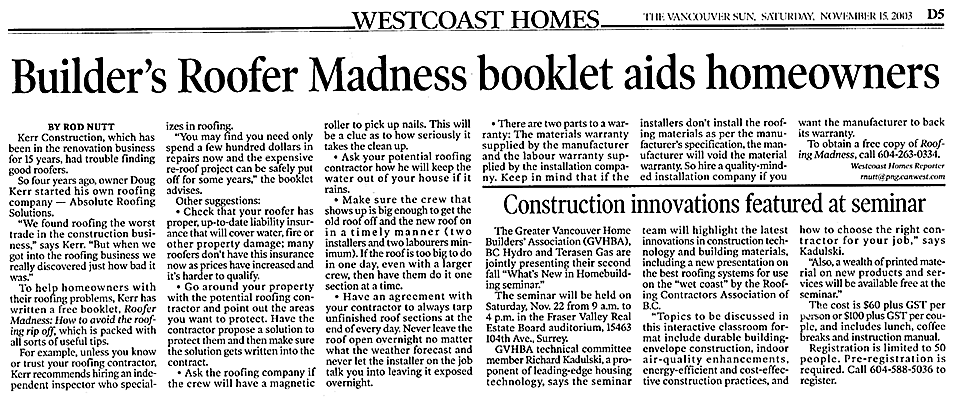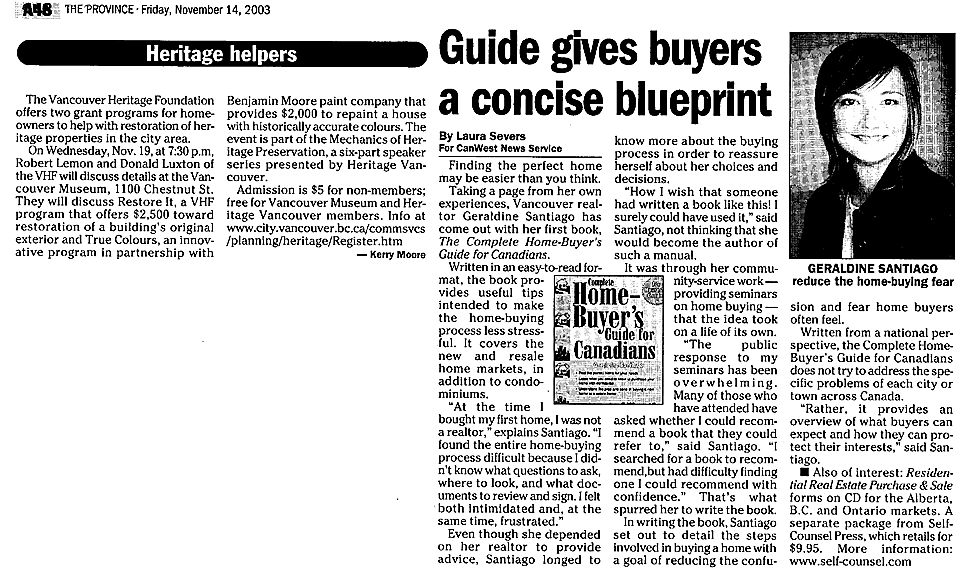Downtown hotel keeps four coveted diamonds but only Sutton Place and Pan Pacific in rarefied ranks with five
Bruce Constantineau
Sun
The upscale Four Seasons Hotel in Vancouver has lost its prestigious Five-Diamond rating from the influential American Automobile Association after securing the top award for 27 consecutive years.
The Pan Pacific and the Sutton Place hotels in Vancouver retained their Five-Diamond ratings, the only hotels in Canada to be so honoured.
Four Seasons Hotel general manager Ruy Paes-Braga said the AAA cited “numerous physical detractors” at the 28-year-old hotel in downgrading it to Four-Diamond status.
He stressed the hotel’s service levels and food and beverage operations were all rated as Five-Diamond quality, but the building’s physical limitations prompted the downgrade.
“We were built 28 years ago and things have evolved and styles have changed,” Paes-Braga said. “Of course we’re disappointed, but many Four Seasons hotels don’t have a Five-Diamond rating and they are some of the top hotels around. This is just one of those things.”
He said the AAA cited several physical reasons for the downgrade — including the “dated” appearance of the hotel’s lower lobby, no separate showers in guest bathrooms, no spa facility and a lack of decorative ceiling trim in guest rooms.
The rating organization also said desks in guest rooms were too small, and felt public restrooms in the hotel lacked an “upscale appearance” due to dim lighting and metal stall doors.
Paes-Braga said the hotel will do what it can to rectify the problems cited by the AAA, but admitted it will be difficult to do it quickly.
“We’ve been thinking about building a spa on one of our lower floors, but the economy isn’t the greatest right now so it’s a tough time to make an investment like that,” he said. “It would cost about $3 million.”
Paes-Braga said the hotel just doesn’t have the physical space to build separate showers in all guest rooms, and noted he would have to close the hotel to take out all the red floor tiles in the lower lobby and replace them with marble or granite.
“We’ll do the best we can as far as the physical detractors are concerned, but they have to make sense,” he said. “We are running a business here. We’re a large company with shareholders and we have to do it properly.”
The AAA evaluates more than 30,000 hotel properties throughout North America every year, and the 2004 list includes just 82 Five-Diamond properties, which are considered the ultimate in luxury and sophistication.
AAA representative Janie Graziani said there are a huge number of guidelines for properties to follow and when a downgrade occurs, it usually means the hotel has “missed the mark” on several guidelines, not just one.
She noted hotels are always told of a pending downgrade and given a chance to improve their standards to retain their rating.
“But sometimes properties decide that they don’t want to go to the expense or the time to make those improvements,” Graziani said. “It’s an enormous commitment of time and money to keep up with the standards.”
Former Pan Pacific Hotel general manager Susan Gomez said the hotel worked very hard to regain its Five-Diamond rating when it lost the award in 1996 and 1997.
“It was important for us to get it back because we were not a known entity like the Four Seasons, which can almost stand alone on its name because the company has such a great reputation,” she said.
Gomez said new hotels with outstanding facilities have raised the standards for everyone in the industry.
“It’s almost physically impossible for some of the older hotels like the Four Seasons to meet those standards without gutting the whole place,” she said.
The Pan Pacific Hotel at Canada Place and the Sutton Place Hotel on Burrard Street both opened in 1986, about 10 years after the Four Seasons opened on Georgia Street. The Pan Pacific’s Five Sails restaurant has also received a 2004 Five-Diamond rating from the AAA, making it the only hotel in Canada to receive both honours.
Vancouver hotel analyst Angus Wilkinson doubts the downgrade will hurt the Four Seasons in Vancouver because the hotel will still appeal to many clients who are loyal to the Four Seasons brand.
“It’s the brand they believe in, whether it’s in London or New York or San Francisco or Vancouver,” he said.
– – –
‘IMPECCABLE STANDARDS’ REQUIRED
*****
Definition of coveted five-diamond status, according to the American Automobile Association: These establishments reflect the characteristics of the ultimate in luxury and sophistication. Accommodations are first class. The physical attributes are extraordinary in every manner. The fundamental hallmarks at this level are to meticulously serve and exceed all guest expectations while maintaining an impeccable standard of excellence. Many personalized services and amenities enhance an unmatched level of comfort. Only two, the Sutton Place and the Pan Pacific, get this ranking in Vancouver.
****
Four diamonds are still impressive. The AAA puts it this way: These establishments are upscale in all areas. Accommodations are progressively more refined and stylish. The physical attributes reflect an obvious enhanced level of quality throughout. The fundamental hallmarks at this level include an extensive array of amenities combined with a high degree of hospitality, service and attention to detail.
These local hotels rate four diamonds: Four Seasons, Marriott Pinnacle, Le Soleil, Metropolitan, Sheraton Vancouver Wall Centre, Fairmont Hotel Vancouver, Fairmont Waterfront, Westin Bayshore, Westin Grand, Wedgewood.
© Copyright 2003 Vancouver Sun














